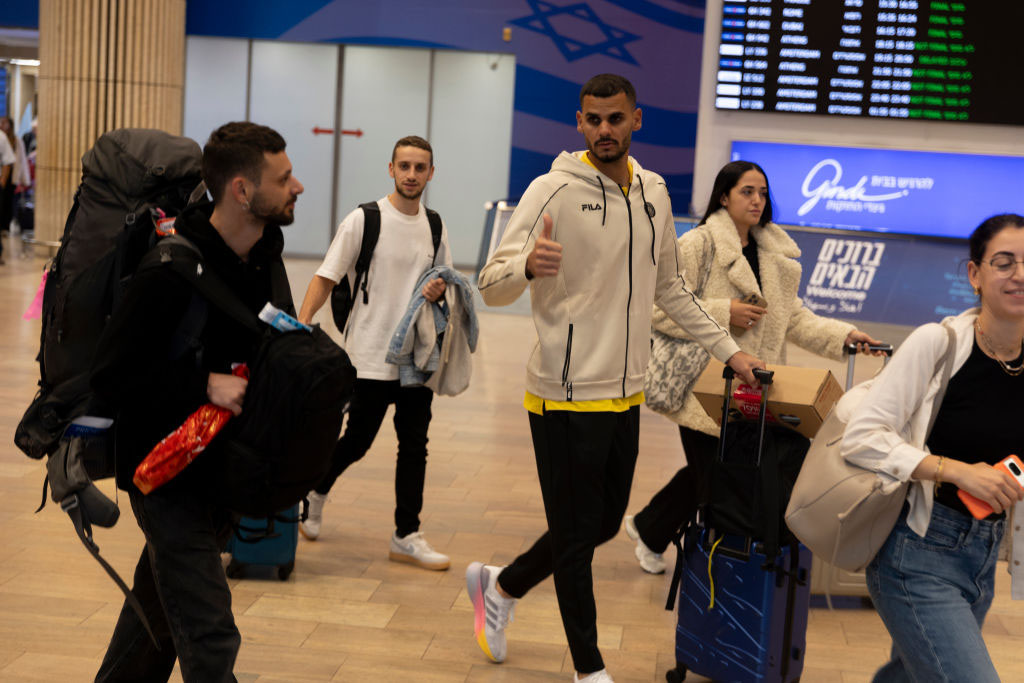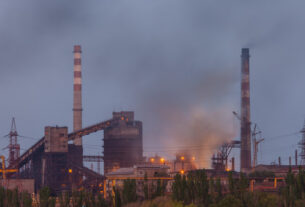David Siegel, president of the U.S. affiliate of pro-Israel European Leadership Network (ELNET), told The Journal in a phone interview that the antisemitic violence that occurred in Amsterdam on the evening of Nov. 7 was reminiscent of the Oct. 7, 2023 massacre.
According to various media reports and video footage on social media, around 100 men assaulted Israelis walking out of a Maccabi Tel Aviv soccer match in what appeared to be a preplanned, coordinated effort. The Israeli government sent planes to rescue the victims. More than 60 people have been arrested following the violence.
“There were organized gangs that literally entrapped Israelis all over the city and you saw the footage, it really reminds you of Oct. 7 because they were also proudly broadcasting all of this on social media as it was happening and throwing people into the river and kicking people when they were down, women, men kids… and it went on for many, many hours, unfortunately,” Siegel said, declaring that “Nov. 7 is a date that people are going to remember for a very, very long time.”
Richard Priem, interim CEO of the Community Security Service (CSS), told The Journal that he has been hearing from various contacts that the events of Nov. 7 were “a premeditated attempt by a large group of people connected through multiple chat groups over different platforms to deliberately, as they call it, hunt Jews in the city center.” Priem, himself born and raised in Amsterdam and whose grandparents were Holocaust survivors, elaborated that the individuals involved in the attacks “suppressed and ambushed Israeli tourists” and that video footage circulating on social media has been confirmed showing “violent assaults, there were people thrown in the canals under the guise of antisemitic chants and rhetoric, car rammings of Israeli tourists.” Another video on social media showed a Ukrainian tourist being “aggressively questioned” if he’s Israeli. “Based on the amount of people that have ended up in the hospital, based on the footage we’ve seen of people being knocked unconscious … it’s quite severe.”
Siegel said that “the injured are out of the hospitals and are on their way to Israel, if not already landing. “So for now, the crisis is over, but now the test begins: Are authorities there actually going to seriously investigate this? Are they going to collect evidence and cooperate with Israeli law enforcement?” While European leaders have provided “very powerful statements,” such statements “are really just the beginning and it’s not enough, and I think we should all expect and demand serious law enforcement action in all the countries that are facing this problem in Western Europe.”
Local authorities have said that “they had advanced warning, that they had 800 law enforcement [officers] in the streets,” continued Siegel, “it is a big city, it’s questionable if that was enough … it certainly wasn’t, because this went on for far too many hours with very large numbers of people involved. That’s going to be investigated.”
Priem said there were there have been previous examples showing the failure of Amsterdam “to nip this in the bud,” with the first example being protesters chanting anti-Israel and antisemitic slurs in response to the opening of a Holocaust museum in March; Priem criticized the city “for allowing this kind of intimidation to happen.” The second was when it allowed an anti-Israel protest nearby an event commemorating those being held hostage by Hamas; according to Priem, the protesters were positioned where they could harass and assault those coming and going from the event. As for what occurred on Nov. 7, Priem criticized the government for being “utterly unprepared” and not taking the threat seriously enough despite various warning signs.
Some on social media linked to an Oct. 15 ELNET report documenting how Hamas is active in the Netherlands. “There’s been an ongoing problem of NGOs cloaking themselves as humanitarian or what have you,” Siegel said, alleging that such organizations are actually “pro-Iranian, or proxies of Iran, pro-Hamas and other terror organizations that are fundraising all over the world, and certainly in Europe. So what we tried to do in this report is to highlight that aspect and bring governments, parliaments to look at this more seriously and understand that there’s still a lot of work that needs to be done.”
There is “no doubt” in Siegel’s mind that there’s a serious concern that the events of Nov. 7 in Amsterdam could be replicated elsewhere in the West, including in the United States. “You saw in the streets of L.A. We see it in the streets of New York all the time … if you see demonstrations in the heart of New York with Hezbollah flags and ISIS flags and Hamas flags, this indicates that something is very, very wrong in this situation.” Priem said that “the tactics employed by anti-Israeli extremists in Europe are often taken and deployed here in the United States as well,” recalling when a car convoy with Palestinian flags in London was shouting that they were going to attack and rape Jewish women in 2021; shortly thereafter, a similar car convoy in New York City throwing “firecrackers at passersby and again intimidating and harassing the Jewish population.” “When the Jewish population thinks about security … we have to be aware that Jews can be targeted on their way to locations as well and we need to be smart and proactive,” he added.
Siegel warned that Europe “is not fully prepared” on both the civilian and the defense sides in terms of “societal resilience, law enforcement, the assets, the investments you need to put into place so these events don’t happen again … this is a real existential crisis for several of these countries and cities.” He argued that the events of Nov. 7 should be a “wake-up” call for the continent.
But Siegel acknowledged that some European countries have taken important actions, pointing to how 32 of them have adopted the International Holocaust Remembrance Alliance (IHRA) definition of antisemitism and that on Nov. 7, the German Bundestag (parliament) “passed a very, very important set of declarations, resolutions on antisemitism, on BDS, on how it should be illegal, how they should withdraw any public funding from institutions or organizations that are engaging in these kinds of activities.”
Siegel also pointed out that “there’s been a whole awakening in Europe” in terms of “securing their own borders, vetting extremists that are coming into their countries … the discussion in the new [European Union parliament in]Brussels after the elections is all about, how do we defend ourselves, both externally and internally, and internally means: looking at who is coming in and are they abiding by the laws, and are they there legally or not.” He cited Germany as an example of a country “getting really tough on extremism,” as both Hamas and Hezbollah are outlawed there and “imams that are associated with Iran are being deported” as are noncitizen protesters who broke the law. “You’re already seeing this happen, and a lot more has to take place in this regard.”
He called on European countries to increase sanctions on Iran and put more pressure on the Iranian Revolutionary Guard Corps (IRGC) and designate it as a terror organization.
“So there’s just a whole set of issues that need to take place … to combat hate, antisemitism and funding for terrorism,” Siegel said.
“This not a Europe-specific problem, it’s a worldwide problem,” Siegel continued. “In our eyes, it’s like the seventh front. Iran attacked Israel on seven fronts, starting on Oct. 7, and here we are dealing with the eighth front which is the rest of the world and it’s very organized and it’s a serious threat.”




